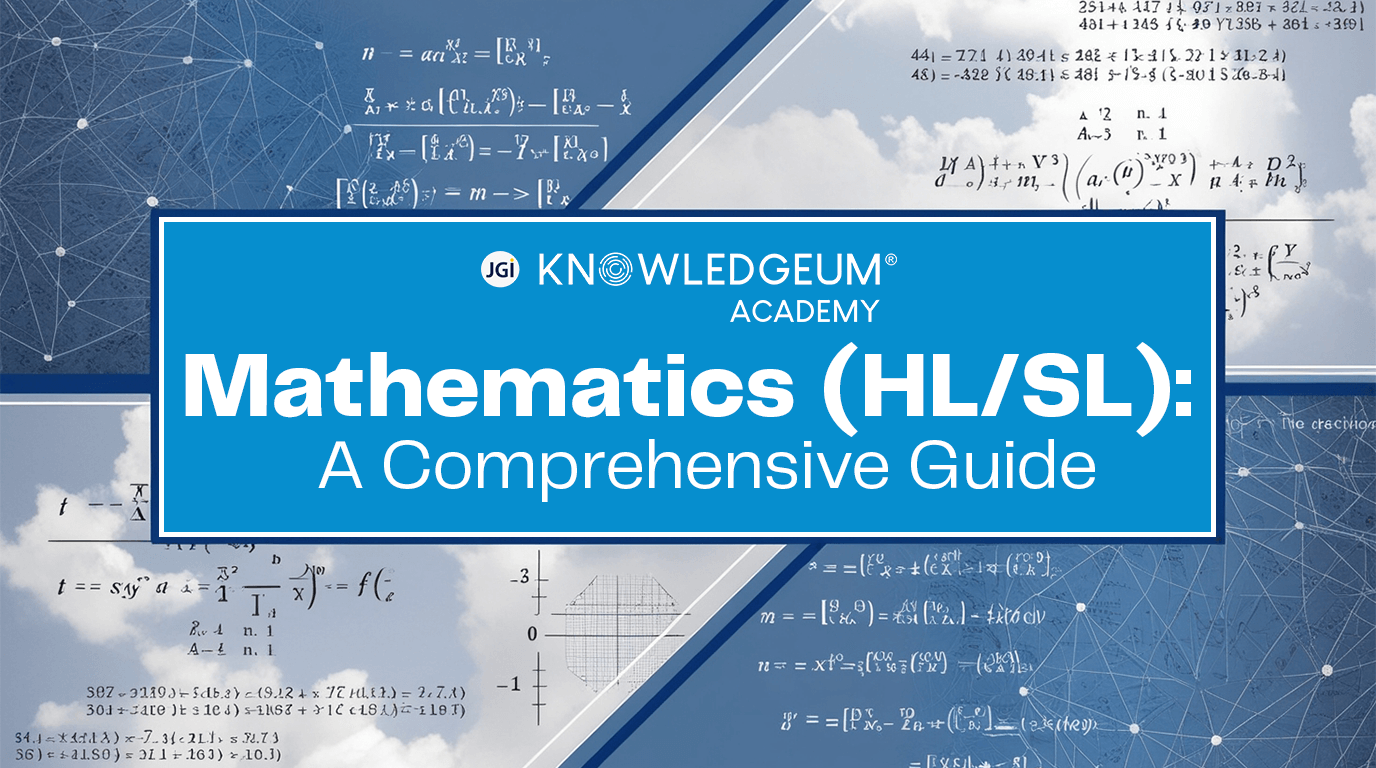Mathematics (HL/SL): A Comprehensive Guide

Mathematics plays a pivotal role in the International Baccalaureate (IB) curriculum, whether at the Higher Level (HL) or Standard Level (SL). Learners taking IB Math HL/SL are not only preparing for their exams but are also developing critical thinking skills that will benefit them in their future academic and professional careers. We aim to provide an in-depth overview of Mathematics (HL/SL), focusing on key topics, differences, study strategies, and the frequently asked questions (FAQs) that many learners encounter.
- Introduction to Mathematics in IB Curriculum
- Difference Between Higher Level (HL) and Standard Level (SL) Mathematics
- Core Concepts in Mathematics HL/SL
- Advanced Topics in Mathematics HL
- Important Skills Developed Through Mathematics HL/SL
- How to Approach IB Math HL/SL Exams
- Study Tips for Success in Mathematics HL/SL
- Resources for Studying IB Mathematics HL/SL
- Role of Internal Assessments (IA) in Mathematics HL/SL
- Common Challenges Faced by learners in Math HL/SL
- Benefits of Taking Mathematics HL/SL in University Admissions
- Mathematics in Real-World Applications
- Common Misconceptions About IB Mathematics
- How to Maintain a Balance Between HL/SL and Other Subjects
- FAQs about Mathematics (HL/SL)
- Conclusion
Introduction to Mathematics in IB Curriculum
The IB curriculum is known for its rigorous approach to education, and Mathematics is a core subject. Both HL and SL Mathematics offer learners an opportunity to explore mathematical concepts in depth, but the levels differ in content complexity and workload. Whether you choose HL or SL, the mathematical skills you acquire will have a lasting impact on your academic journey.
Difference Between Higher Level (HL) and Standard Level (SL) Mathematics
Choosing between HL and SL Mathematics depends on your interests, career aspirations, and overall workload. The main differences lie in the depth of the material covered and the number of instructional hours. HL covers advanced topics such as matrices and complex numbers, whereas SL focuses more on fundamental mathematical concepts.
For learners aiming for careers in STEM fields, HL is often the preferred choice, as it provides a more rigorous foundation. However, SL is also highly regarded and offers a balanced approach for those interested in non-STEM disciplines.
Core Concepts in Mathematics HL/SL
Both HL and SL share a common foundation in core mathematical concepts:
- Functions and Equations: Understanding how to manipulate and solve equations is crucial for problem-solving.
- Calculus: Both levels introduce learners to derivatives and integrals, which are foundational for advanced mathematics.
- Probability and Statistics: This area is particularly useful for analysing data and making informed decisions.
- Algebra: Mastering algebraic manipulation is essential for success in both levels of IB Math.
Advanced Topics in Mathematics HL
In HL, learners delve into more advanced mathematical topics, which include:
- Matrices and Vectors: These concepts are particularly useful in areas like physics and engineering.
- Differential Equations: A critical component for those pursuing further studies in mathematics or related fields.
- Complex Numbers: A topic that opens up new dimensions of understanding in mathematics and its applications.
Important Skills Developed Through Mathematics HL/SL
Studying mathematics at either HL or SL develops several valuable skills, such as:
- Analytical Thinking: The ability to approach complex problems systematically.
- Problem-Solving Skills: Learning how to apply mathematical theories to solve real-world problems.
- Application of Math in Real-World Scenarios: From economics to engineering, math is an essential tool for many industries.
How to Approach IB Math HL/SL Exams
Preparation for IB Math HL/SL exams requires a strategic approach. Key strategies include:
- Time Management: Efficiently managing time during the exam is crucial to ensure all questions are answered.
- Understanding Exam Patterns: Familiarizing yourself with past papers can help identify patterns and common question types.
- Key Areas to Focus On: Prioritize understanding over memorization to succeed in more complex problem-solving tasks.
Study Tips for Success in Mathematics HL/SL
To excel in IB Mathematics, learners should:
- Practice Regularly: Consistent practice helps increase understanding and retention.
- Focus on Understanding Concepts: Don’t just memorize formulas—understand the underlying principles.
- Use Technology and Graphing Tools: Take advantage of graphing calculators and software to enhance your understanding.
Resources for Studying IB Mathematics HL/SL
There are several resources available to help learners succeed in IB Math:
- Textbooks: Ensure you have access to recommended IB Math textbooks.
- Online Platforms: Websites like Khan Academy and IB-specific forums provide valuable practice and insights.
Role of Internal Assessments (IA) in Mathematics HL/SL
The Internal Assessment (IA) is an important component of IB Mathematics, contributing significantly to the final grade. It allows learners to explore a math topic of their choice and demonstrate their analytical abilities.
Common Challenges Faced by learners in Math HL/SL
Some of the common challenges learners face include:
- Grasping Complex Topics: Subjects like calculus and differential equations can be challenging without proper guidance.
- Balancing IA and Exam Prep: Many learners struggle to allocate time between IA research and exam preparation.
Benefits of Taking Mathematics HL/SL in University Admissions
Math HL/SL is highly regarded by universities, especially for those pursuing STEM courses. The skills acquired in these levels demonstrate a strong foundation in mathematical reasoning, making learners attractive candidates for competitive programmes.
Mathematics in Real-World Applications
Mathematics isn’t confined to textbooks—it’s used in a variety of real-world applications, such as:
- Economics: Calculating growth rates, inflation, and optimization in economics.
- Engineering: Structural calculations and algorithmic problem solving in technology.
Common Misconceptions About IB Mathematics
One common misconception is that HL is overwhelmingly difficult compared to SL. While HL is more advanced, with proper preparation, it is manageable. Another misconception is that SL is less important—universities highly value both levels depending on the student’s career path.
How to Maintain a Balance Between HL/SL and Other Subjects
IB learners often face the challenge of balancing their time across subjects. Effective time management, prioritization, and setting realistic goals are key strategies to handle the workload.
FAQs about Mathematics (HL/SL)
- What is the difference between HL and SL mathematics? HL covers more advanced topics than SL, with more instructional hours dedicated to each.
- Is it better to take HL or SL math for university admissions? It depends on your career goals. HL is recommended for STEM fields, but SL is well-regarded in non-STEM areas.
- How important is IA in the final grade? The IA contributes significantly to the overall grade and allows learners to showcase their understanding.
- What is the best way to prepare for math exams? Regular practice, understanding concepts, and time management are key to success.
- Can learners switch from HL to SL or vice versa? Yes, learners can switch, but it is best to consult with their teachers and advisors before doing so.
- How can I improve my understanding of difficult topics? Seek help from teachers, use online resources, and focus on problem-solving techniques.
Conclusion
Mathematics (HL/SL) in the IB curriculum offers a comprehensive and challenging exploration of mathematical concepts. With the right strategies and resources, learners can excel and build a solid foundation for future studies.




